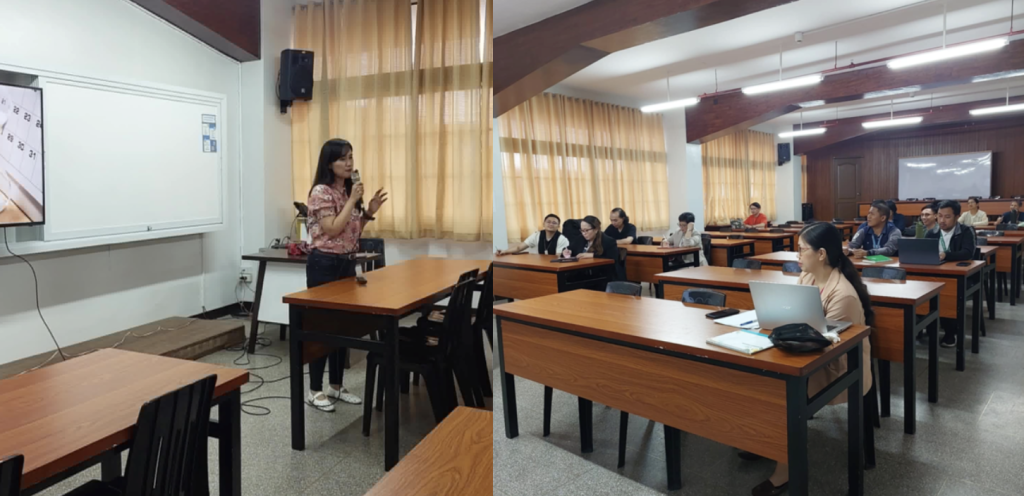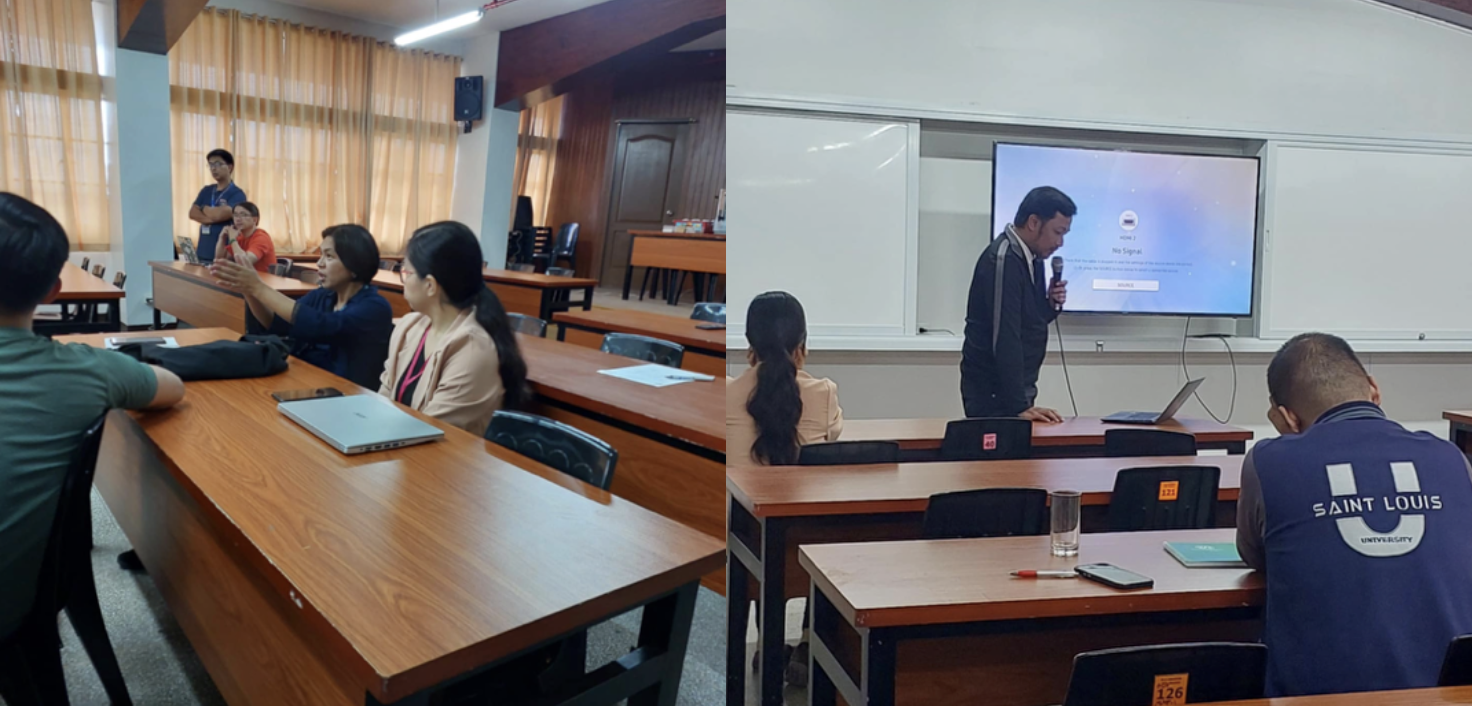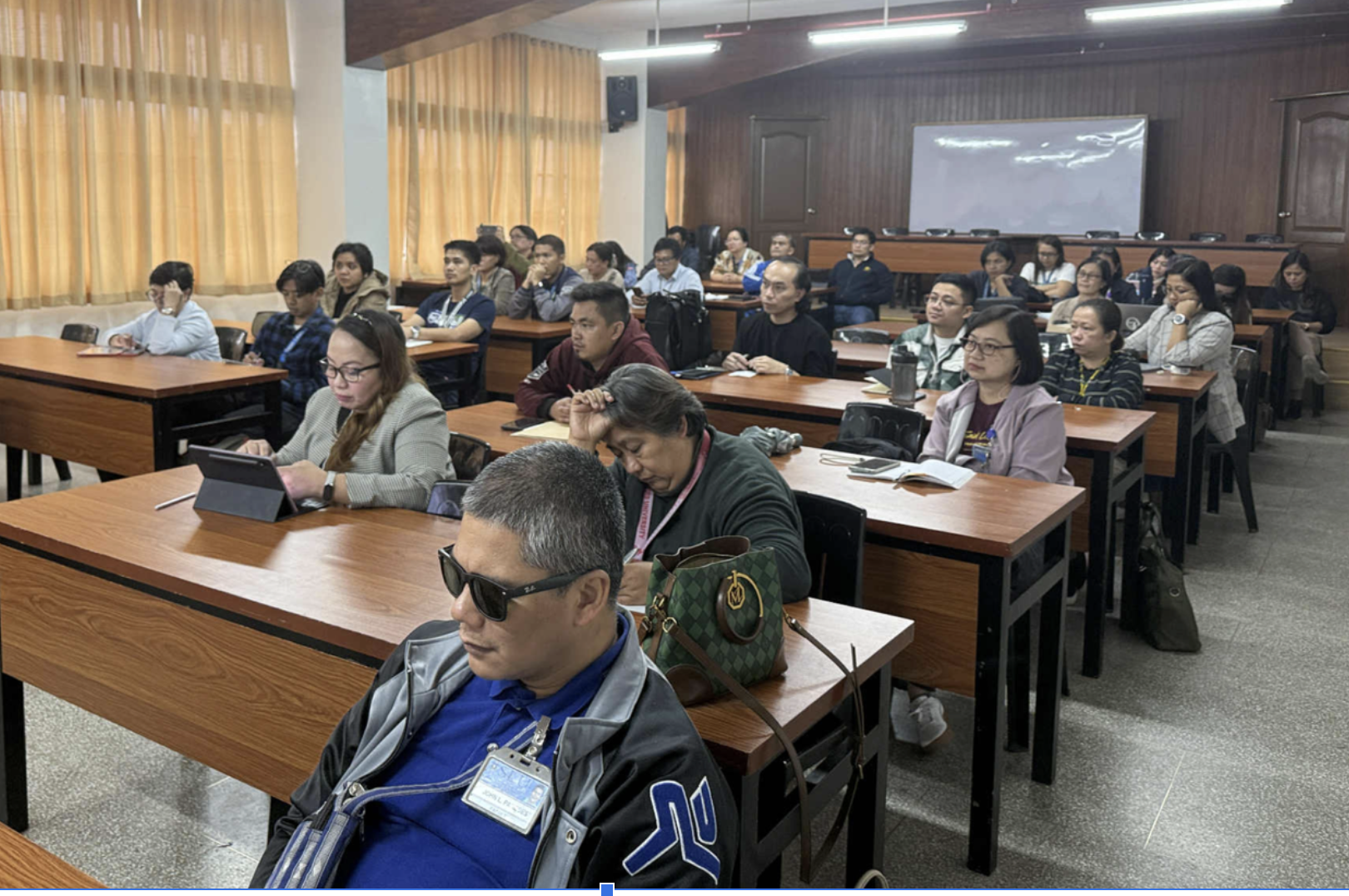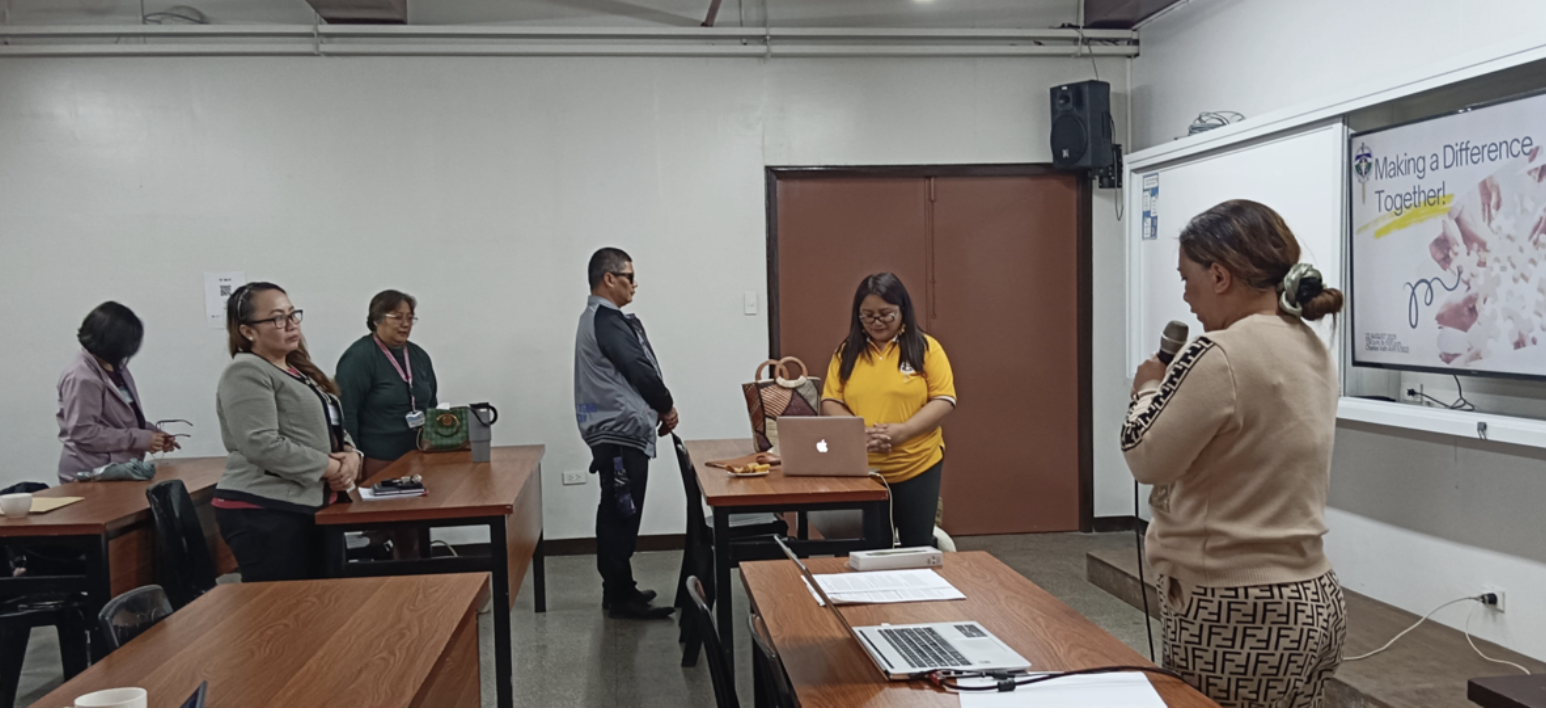On 19 August 2025, an orientation on the functions of SLU Research, Innovation, & Sustainable Extension Center (RISE) and Undergraduate Research and Innovation Coordinators (UGRIC) was held at the Audio-Visual Room (AVR), Msgr. Charles Vath Library Building, SLU Main Campus attended by 16 participants and facilitated by Laarni B. Natividad, PhD, the Research Capacitation and Services Officer of RISE.
The meeting began with an introduction by RISE Director, Richel Lamadrid, PhD, who highlighted the function of the RISE Center, formerly the University Research and Innovation Center (UnRIC), and emphasized the crucial role of the Undergraduate Research and Innovation Coordinators (UGRICs) in supervising undergraduate research groups and Faculty Research and Innovation Promoters (FRIPs). Following this, Dr. Natividad, introduced the RISE Officers and the newly appointed UGRICs, officially recognizing their roles and responsibilities.
Dr. Natividad then presented the pending works from AY 2024–2025, research guidelines, qualifications, and roles of FRIPs, and matters concerning the proper loading of FRIPs. She also introduced additional guidelines for research implementation, which included the requirement of a mandatory ethics review for all research involving human participants, the validation of non-standardized research tools prior to use, and the journal submission requirement to ensure dissemination of research outputs. These specific requirements on ethics review and tool validation were further discussed in detail by REC Chair, Rainier Lacalle, PhD.

Engr. Harold Lagto, the Institutional Studies and Methods officer, provided an overview of the other RISE Center units, particularly those handling methodological and statistical assistance as well as training and workshops for research writing.

Incentives were then discussed by Mr. Andrew Ducas, the Innovation Technology Transfer Officer, highlighting recognitions for intellectual property outputs such as patents, industrial design registrations, utility models, copyright, and other creative innovations. Mr. Ducas also presented and secured the group’s approval for guidelines on the monitoring and implementation of Innovation Laboratories, a key component of fostering innovation across the university.

RISE’s Sustainable Research Extension Officer, Jeramie Molino, PhD, concluded the meeting through a presentation covering the Extension Program, stressing the importance of integrating research with community-based initiatives to ensure real-world impact and sustainability.
Meet & Greet of the University Research Innovation Coordinators (UGRICs) with the Extension Project Coordinators (EPCs)
On 22 August 2025, a meeting aimed at strengthening the interface between the UGRICs and Extension Program Coordinators (EPCs) was held at the Audio-Visual Room (AVR), Msgr. Charles Vath Library Building, SLU Main Campus. The session was attended by 44 participants and facilitated by Dr. Molino.
The meeting opened with a prayer led by Dr. Richel Lamadrid, followed by welcome remarks from the RISE office, during which the officers were introduced.
The highlight of the meeting was the talk of SLU Vice President for Academic Affairs (VPAA), Felina P. Espique, PhD, who emphasized that a university such as SLU must be a platform for research, development, innovation, and extension to promote inclusive socio-economic development. She underscored the trifocal roles of SLU faculty members—Instruction, Research, and Extension—and explained how these functions help the University maintain its autonomous status granted by CHED and secure a top position in national and international university rankings.

Dr. Espique stressed that these three roles must work in dynamic synergy. A faculty member, whether working with undergraduate or graduate students, must balance teaching with research and extension work. She emphasized that extension programs provide evidence-based, science-driven solutions to real-world problems, making them vital to the University’s societal contribution.

To ensure accountability, close monitoring of the trifocal functions will be carried out by the Educational Organization Management Systems (EOMs). She also presented the importance of a strong interface between UGRICs and Extensionists in realizing this vision. She explained that the very reason for the restructuring of UnRIC to RISE was the adoption of the University’s Extension programs, which were formerly under the CEOPO office. This integration is vital so that research, innovation, and extension will move together in alignment, ensuring proper coordination, synergy, and systematic monitoring of all academic functions.

Dr. Molino deepened the discussion by contrasting extension and outreach activities, clarifying their distinct objectives and scope. She also introduced the mapping matrix as a tool for identifying programs with potential research value, particularly those that can generate new knowledge from completed extension projects. In closing, Dr. Molino emphasized the importance of compliance with extension program requirements, highlighting the regular submission of monthly progress reports and the completion of year-end evaluations.
The series of meetings are aligned with the United Nations Sustainable Development Goals 4 (Quality Education) and 17 (Partnership for the Goals). (Article by Dr. Laarni Natividad | Photos by the SLU RISE Center)







